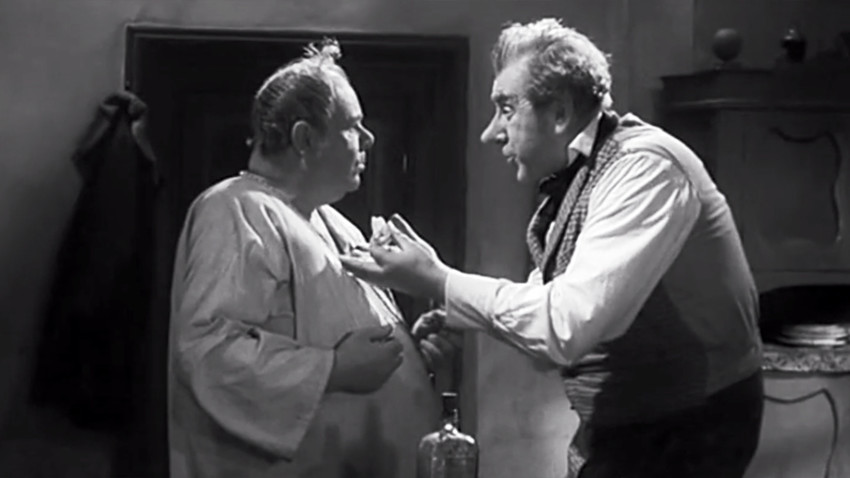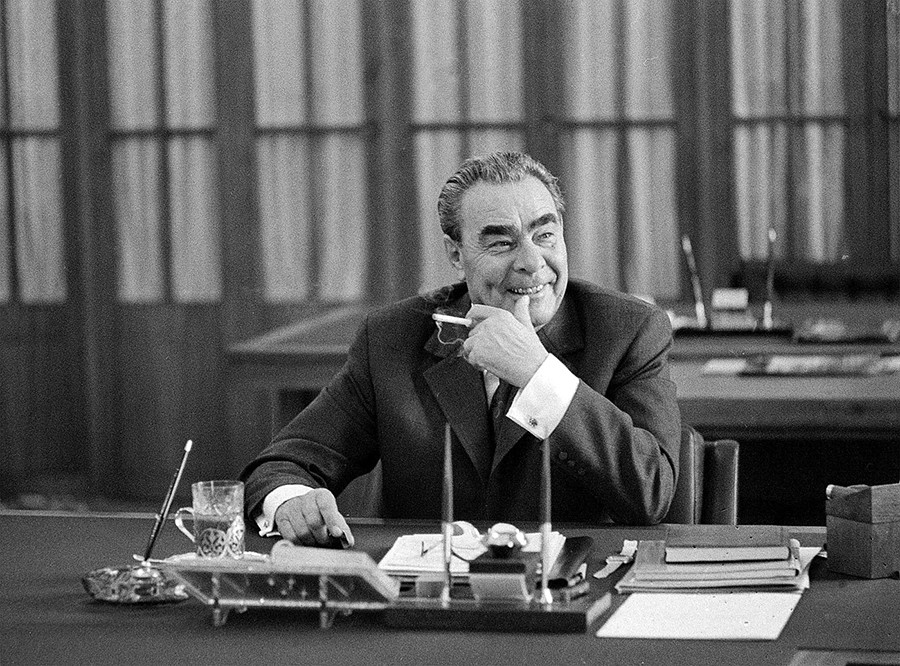Who is Mr. Petrovich? The strange and quirky world of the Russian patronymic

Screenshot from "How Ivan Ivanovich Quarreled with Ivan Nikiforovich" movie (1959) with Ivan Ivanovich quarreling with Ivan Nikiforovich
ScreenshotVarious nations have different approaches to the use of the patronymic (the name of one’s father). In most English-speaking countries a patronymic can be used as a middle name, but you can give your child any middle name you want, or don’t give one at all, or even stop halfway. For instance, Harry S. Truman, the 33rd U.S. president, was given only the letter “S” and a point for a middle name, with “S.” standing for nothing!
In other countries, things can be quite different. In Iceland, people have no surname at all, with the patronymic serving as a replacement. For example, the famous singer Björk is officially Björk Guðmundsdóttir, which means “the daughter of Guðmund.” As we see, various cultures mean diverse patronymic traditions. What about Russia?
Hello, Ivan Ivanovich
The vast majority of Russians have a patronymic (
The patronymic is usually formed by the endings -
Be polite
In officialdom, people tend to call each other by their first name and patronymic. This is polite, and if you want to show respect during a formal conversation it’s better to use the patronymic (as long as you know it, of course). This works best
Let’s say you’re in a clinic and a grumpy old doctor nags you for not filling out your application correctly. If she wears a badge and you can read the name, then call her with the use of the patronymic, (for example, “Darya Sergeevna”), and her heart will melt, especially if you’re a foreigner struggling with Russian.
Dear Leonid Ilyich…

Leonid Ilyich Brezhnev, "dear Leonid Ilyich", was among those Soviet leaders who were often referred to with their patronyms.
Vladimir Musaelyan/TASSThe patronymic has deep roots in Russian culture. Speaking of literature, almost all heroes in novels by Tolstoy and Dostoevsky, as well as those by other great 19thcentury authors, address each other with the patronymic because they’re noble and intelligent people. Nikolai Gogol, for instance, called one of his stories, The Tale of How Ivan Ivanovich Quarreled with Ivan Nikiforovich, which is a little too much even for Russian ears. This is an ironic story where two friends become archenemies because of a trifling matter.
It’s important not to overuse the patronymic,
When chatting with friends
Paradoxically, a formal patronymic has another side, used among friends, when sometimes in a shortened form they become a quasi-nickname. Let’s say that the above-mentioned Ivan Petrovich relaxes at a bar with his colleague, Andrei Sergeevich. They’d probably call each other “Petrovich” and “Sergeich” after a couple of beers, complaining about their wives, work
This manner of greeting is mostly for men, and ladies seldom call each other by the patronymic, even if they’re very close. Among
Perhaps the most important thing about the patronymic is that Russians know foreigners are not accustomed to using it the way they do. So, there’s nothing wrong with omitting the patronymic and just calling Ivan Petrovich, “Ivan.” He won’t get offended.
If using any of Russia Beyond's content, partly or in full, always provide an active hyperlink to the original material.
Subscribe
to our newsletter!
Get the week's best stories straight to your inbox